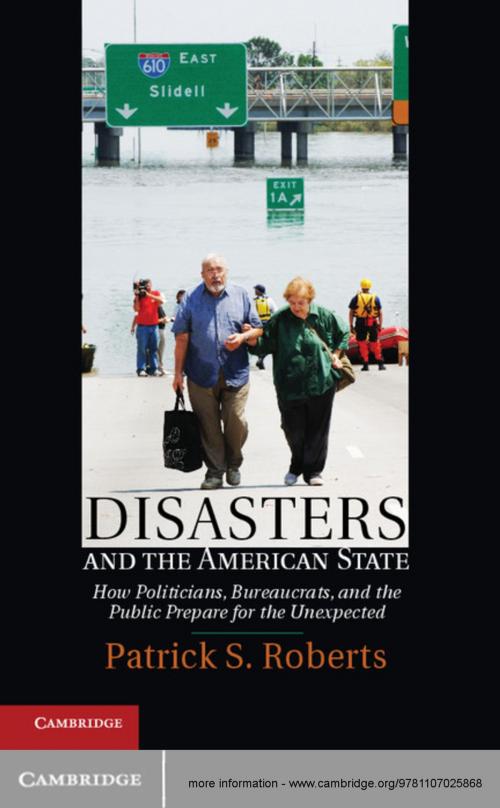Disasters and the American State
How Politicians, Bureaucrats, and the Public Prepare for the Unexpected
Nonfiction, Social & Cultural Studies, Political Science, Government, Social Science| Author: | Patrick S. Roberts | ISBN: | 9781107241480 |
| Publisher: | Cambridge University Press | Publication: | October 28, 2013 |
| Imprint: | Cambridge University Press | Language: | English |
| Author: | Patrick S. Roberts |
| ISBN: | 9781107241480 |
| Publisher: | Cambridge University Press |
| Publication: | October 28, 2013 |
| Imprint: | Cambridge University Press |
| Language: | English |
Disasters and the American State offers a thesis about the trajectory of federal government involvement in preparing for disaster shaped by contingent events. Politicians and bureaucrats claim credit for the government's successes in preparing for and responding to disaster, and they are also blamed for failures outside of government's control. New interventions have created precedents and established organizations and administrative cultures that accumulated over time and produced a general trend in which citizens, politicians and bureaucrats expect the government to provide more security from more kinds of disasters. The trend reached its peak when the Federal Emergency Management Agency adopted the idea of preparing for 'all hazards' as its mantra. Despite the rhetoric, however, the federal government's increasingly bold claims and heightened public expectations are disproportionate to the ability of the federal government to prevent or reduce the damage caused by disaster.
Disasters and the American State offers a thesis about the trajectory of federal government involvement in preparing for disaster shaped by contingent events. Politicians and bureaucrats claim credit for the government's successes in preparing for and responding to disaster, and they are also blamed for failures outside of government's control. New interventions have created precedents and established organizations and administrative cultures that accumulated over time and produced a general trend in which citizens, politicians and bureaucrats expect the government to provide more security from more kinds of disasters. The trend reached its peak when the Federal Emergency Management Agency adopted the idea of preparing for 'all hazards' as its mantra. Despite the rhetoric, however, the federal government's increasingly bold claims and heightened public expectations are disproportionate to the ability of the federal government to prevent or reduce the damage caused by disaster.















